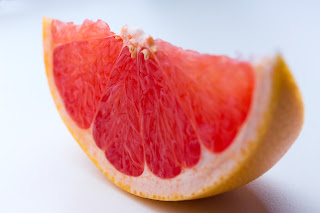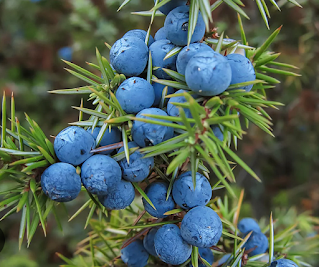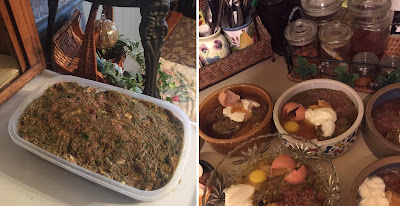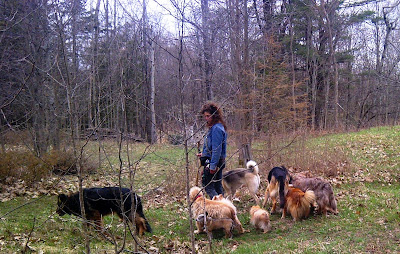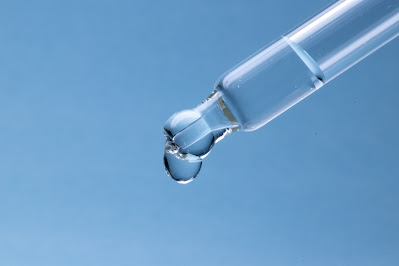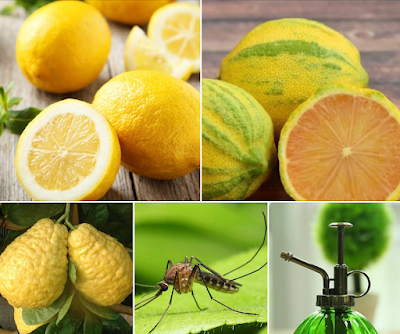A Natural Holistic Approach To Treating and Preventing Urinary Tract Infections (Bladder Infections) in Dogs and Cats
★ 11.5 min read
1.0 Signs and Symptoms of Urinary Tract Infections (Bladder Infections)
1.2 Medical Emergency
In this article:
- Signs and Symptoms of Urinary Tract Infections (Bladder Infections)
- Symptoms
- Medical Emergency
- Common Causes of Urinary Tract Infections
- Bacteria, pH Levels and Diet
- The Healthy Dog and Cat's pH Level
- The Vulnerable Dog and Cat's pH Level
- Additional Factors That Contribute to Urinary Tract Infections
- Natural Treatments to Help Resolve Urinary Tract Infections
- Natural, Holistic Approach
- Topical Treatment to Help Prevent Reinfection - Fresh Lemon and Herbal Tea Rinse
- Ingested Treatment
- Lemon, Cranberry, Citrus and ACV
- Grapefruit Seed Extract
- Juniper Berry
- Uva Ursa
- Additional Herbs to Help Treat Urinary Tract Infections
- Cat's Claw
- Golden Seal
- Licorice Root
- Slippery Elm Bark
- Milk Thistle Seed
- Herb Dosing General Guidelines
- The Diet
- How Long Does It Take Before Improvement is Seen?
The
earlier you start treatment, the easier it is to resolve a urinary
tract infection (UTI). If left untreated or improperly treated a urinary tract infection (bladder infection) can become a very serious condition.
1.0 Signs and Symptoms of Urinary Tract Infections (Bladder Infections)
1.1 Symptoms
If your dog or cat has a urinary tract infection, she (or he) may have one of more of the following symptoms:
- Sudden onset of frequent urination, e.g. every 5, 10, 15, 30 minutes or the ongoing need to frequently urinate.
- Urination in inappropriate and unusual places, for example: your bed, her bed, the couch, the stairs, etc.
- Drinking more water than usual.
- Fever.
- Lethargy.
- Traces of blood in the urine.
- Painful urination. Your dog or cat may cry or strain when attempting to urinate.
1.2 Medical Emergency
If your dog or cat is straining to urinate, or is unable to urinate:
- Your dog or cat may have urinary tract stones (bladder or kidney stones) blocking the passage or urine.
- This is a life threatening emergency.
- Call your veterinarian of local emergency clinic IMMEDIATELY.
To learn about bladder and kidney stones:
- Symptoms
- Causes
- Natural treatment
Go to this article.
2.0 Common Causes
of Urinary Tract Infections
2.1 Bacteria, pH Levels and Diet
The most common root cause of urinary tract infections (bladder infections) in dogs and cats is an inappropriate diet, which leaves the body's natural defence systems vulnerable to bad bacteria.
2.0 Common Causes
of Urinary Tract Infections
2.1 Bacteria, pH Levels and Diet
Very Acidic Neutral Very Alkaline
An overgrowth of bad bacteria in the urinary tract is the most common cause of urinary tract infection in dogs and cats.
2.2 The Healthy Dog or Cat's pH Level
The healthy dog or cat has a neutral to slightly acidic urinary and blood pH level. pH ranges in between 5.5 pH to 7.0 pH are considered normal.
Dogs and cats fed a species appropriate raw diet or gently cooked and fresh food diet typically have a pH between 6 pH and 6.5 pH. This is close to neutral pH. Learn about these diets here.
2.3 The Vulnerable Dog or Cat's pH Level
The vulnerable dog and cat has a pH level that's more acidic then it should be.
Dogs
and cats that are fed a highly processed food diet (kibble {dry food}, canned, or wet food), typically
have a pH level that is in the lower range of ‘normal'. These dog and cats have a pH level that's more acidic than it should be. They are more vulnerable to pathogens and parasites.
Parasites, inflammation and disease thrive in an acidic environment.
Dogs and cats with acidified pH levels
below normal are highly vulnerable to health issues, disease and parasite
infestations.
Dogs and cats on a highly processed food diet (kibble {dry food}, canned, or wet food), and/or conventional flea, tick, heartworm products, other toxic personal care choices are at greatest risk.
2.4 Additional Factors That Contribute to Urinary Tract Infections
- An acquired habit of holding urine.
- This habit can develop if your or dog, cat does not get enough and regular opportunities to urinate. If your dog or cat is anxious, etc.
- Insufficient access to fresh, clean drinking water.
- Use of specific conventional medications.
- Transfer of bacteria from the anus to the urethra.
- Transfer of bacteria from lying down on a contaminated surface.
- Urinary tract infections are often caused when bacteria, fungi or parasites find their way into the bladder or uretha. As female dogs and cats have shorter urethras they are more vulnerable to infection via surface contaminates.
- A recessed vulva (hooded vulva).
- Pre-existing health issues that make the dog or cat more vulnerable to urinary tract infections, however a well designed natural protocol tailored to suit the inividual dog or cat greatly reduces risk of secondary issues such as UTIs.
Examples of Pre-Existing Health Issues That Increase Vulnerability
The following are examples of pre-existing health issues that make a dog or cat more vulnerable to UTIs.
A partial list:
- Cushing's disease.
- Diabetes.
- Enlarged Prostate.
- Immune System System.
When
a dog’s or cat's urine becomes more alkaline the following health issues can occur:
- Bacteria overgrowth.
- Cystitis (inflammation of the bladder due to bacteria overgrowth).
- Urinary tract crystals and stones.
- Alkalinity can cause minerals that should be flushed out of the bladder to instead settle in the bladder.
- The mineral molecules may then form crystals.
- The mineral-based crystals are sharp particles that move around in the bladder scrapping the bladder lining which may result in inflammation of the bladder.
- In addition the crystals can bond together to form bladder stones.
- Learn more about urinary tract crystals and stones in this article.
Urinary tract infections can occur:
- In the lower urinary tract.
- In the bladder.
- In the kidneys.
Left
untreated urinary tract infections can be a very serious condition which can cause serious and life
threatening problems.
A veterinarian can perform a urinary analysis test,
x-ray etc. to verify the issue is a UTI and not bladder or kidney stones.
The
conventional treatment for urinary tract infections is conventional antibiotics.
3.1 Natural, Holistic Approach
To treat urinary tract infection symptoms, remedy the condition and prevent re-occurrence the best approach is a natural holistic approach tailored to suit your individual dog or cat's circumstances.
The recommendations below provide examples of natural treatments to help resolve UTIs.
3.2 Topical Treatment To Help Prevent Reinfection - Lemon and Herbal Tea Rinse
Bath your dog or cat using this herbal rinse. This will help to flush out bacteria that might otherwise re-infect your dog or cat's
urinary tract.
Lemon can be used in combination with green tea and organic apple cider vinegar as a highly effective cleansing and disinfecting rinse. An excellent
alternative to commercially made pet shampoos which can be full of toxins
and carcinogens. Just as you would with commercially made shampoos - make sure you
avoid getting the lemon juice cleansing rinse in your dog’s, cat's eyes. Do not use undiluted ACV on broken skin as it will sting.
To Make The Rinse:
- Steep two or three bags of decafinated green tea in boiled water.
- Allow the tea to cool to room temperature.
- Remove the tea bags.
- Add the juice of a fresh lemon to the cooled tea.
- Add the lemon-tea mixture to 4 litres (1 gallon) of room temperature water.
- Add 2 tbs of organic, unfiltered, apple cider vinegar.
- Use the resulting liquid to bath your dog (or cat).
- You can choose to just cleanse your animal's underside and under his tail, or bath your animal's entire body.
3.3 Ingested Treatment
Choose one or several of the following foods, herbs and nutraceuticals
3.3.1 Lemon, Cranberry, Citrus and ACV
Preperation Instructions
Mix the following together in a bowl:
- Fresh lemon juice from the juice of 1 lemon.
- Warm water to equal the amount of lemon juice.
- Add the following to the lemon juice/warm water mixture.
- 1 tbsp frozen or fresh crushed cranberries.
- A few slices of orange or clementines, or mandarine (finely cut or minced).
- 1 tsp of organic unfiltered, unpasteurized apple cider vinegar.
- 1 tsp of raw, unpasteurized honey drizzled over top of the other ingredients.
- If your dog will not eat the mixture as is, you can mix-in some wild caught fish, or meat.
- If your dog does not have kidney or gall bladder stones, liver problems and/or is not pregnant or lactating you can also add:
- 1 tbs of finely chopped fresh parsley, or:
- Parsley water (recipe and dosage as described in this article).
Give this treatment to your dog
twice a day until the infection clears.
3.3.2 Grapefruit Seed Extract
The
benefits of Grapefruit Seed Extract (GSE) were first noted in 1972 by physicist
Dr. Jacob Harich who observed its broad spectrum use as an antibacterial and
antiviral remedy. You can read more about Dr. Jacob Harich and the history of
GSE here.
- Grapefruit seeds contain active ingredients that are:
- Anti-microbial.
- Anti-fungal.
- Anti-bacterial.
- Anti-inflammatory.
- More here.
University
of Georgia researchers found that GSE is an effective antiviral, antifungal and
anti-parasitic agent for fighting many viral and bacterial infections,
including E. coli.
Grapefruit Seed Can be Administered Two Ways
- Pulverized seeds can be used as an ingested treatment sprinkled on top of food.
- Grapefruit seed extract (GSE) drops can be mixed into the food.
- Health benefits of GSE.
- Dosing instructions.
- Cautions.
Juniper berries are harvested
from the coniferous juniper which grows as a bush or medium height tree –
a member of the pine family. Juniper berries are safe for most dogs and cats when used in moderation as directed below. My German
shepherd x Siberian Husky ‘Sarah’ likes juniper berries so much that she picks
them herself – I keep an eye on her to ensure she does not consume too many at one time.
I harvest organic juniper berries on my land. You can purchase juniper berries at a natural health store or herb supplier.
Juniper Berry Tea
3.3.4 Uva Ursi (Bearberry)
- Boil a cup (8 ounces) of water.
- Use 20 juniper berres for every cup of water.
- Place the juniper berries in a tea pot.
- Pour the boiling water into the tea pot and place the lid on the tea pot.
- Allow the berries to steep for 5 to 8 minutes.
- The short steeping time preserves the health-supporting volitle oils
- Then immediately remove the berries from the water.
- Allow the tea to cool.
- The tea is now ready for use.
Daily Dosage
- 1 tbs a day.
Medium size
dogs should have no more tha:
- 1/8 cup a day.
Large dogs
should have no more than:
- 1/3 cup a day.
Note
Note
Use the juniper berries* until the issues clears.
*Do not use for more than 4 consecutive weeks at a time.
Read this article For more information including:
- Health Benefits
- Cautions
- Side Effects
3.3.4 Uva Ursi (Bearberry)
Also known by the name: Arberry, Bearberry, Beargrape, Hogberry, Mountatin Cranberry, Rockberry, etc. Uva Ursa is a very effective herb for preventing an treating uurinary tract infections.
Instructions
- Uva Ursi tea bags or loose cut and sifted leaves.
- Distilled water.
- Boil 8 ounces of water.Place the tea bag in a glass or small tea pot, ad the boiled water.
- Allow to steep for 10 minutes.
- Remove the tea bag or strain the loose leaves from the liquid.
- Allow to cool.
- The tea is ready for use.
Dosage:
- See the herb dosing chart in the last section of this article.
Cautions
Not for:
Not for:
- Puppies.
- Pregnant or lactating dogs or cats.
- Dogs or cats with a condition of thin or thinning retinas.
- Dogs or cats with kidney issues or disease.
3.4 Examples of Additional Herbs to Help Treat Urinary Tract Infections
While your dog or cat has a UTI, use one or two herbs (from the list below) to help fight the infection and boost the immune system. These herbs can be purchased from herb and natural health stores.If your dog or cat is on conventional drugs or has other health issues and conditions always check for drug interactions and health issue contradictions prior to starting your dog or cat on a new herb.
3.4.1 Cats Claw
Cat's claw is a natural anti-inflammatory, anti-bacterial, analgesic herb that can help treat and remedy urinary tract infections.
It can be used in powder, tea or tincture form.
Follow the dosing instructions in the herbal dosing chart further below.
3.4.2 Golden Seal Root
Golden seal is an herbal plant that contains
the natural chemical berberine. Berberine is a natural:
- Antibacterial.
- Antifungal.
Dosage
Follow the dosing instructions in the herbal dosing chart further below.
Licorice root has been used for centuries
as a medicinal herb to treat a wide variety of issues. The medicinal properties
are derived from the root of the licorice plant. Licorice is an effective, fast
acting anti-inflammatory which can completely replace or greatly reduce the
need for corticosteroids.
The chemical glycyrrhizin is the active natural medicinal compound in licorice. Glycyrrhzin is an:
- Analgesic.
- Anti-inflammatory.
- Antimicrobial.
- Health benefits.
- Dosing instructions.
- Cautions.
Go to this article.
Slippery elm bark has a lovely scent. The bark is an excellent:
- Anti-inflammatory.
- Antibacterial.
- Analgesic.
- Health benefits.
- Use and dosing instructions.
- Cautions, interactions.
Go to this article.
If your dog or cat suffers from chronic urinary tract infections it's important to take a close look at your animal's current diet.
3.4.5 Milk Thistle Seed
Also known by the name: Carduus marianus, Silybum mariamum, Silybum,
Silybin, Silymarin, Silymarine, St. Mary’s Thistle, Marianus, Marianum, Our
Lady’s Thistle, etc.
The healing
properties of milk thistle come primarily from:
- The active compund in milk thistle seed, silymarin.
- Is a flavonol (antioxidant) that protects the liver from oxidation.
- Blocks hepatotixic substances from crossing cell membranes – acting to protect the liver from toxic substances.
- Stimulates cell regeneration.
- Silymarin.
- Is stored in the liver where it contributes to regeneration and protection of the liver;
- Which also in-turn works to protect the immune system and metabolism.
For information and instructions on using milk thistle seed:
- Health benefits.
- Dosing instructions.
5.0 Your Dog and Cat's Diet
If your dog or cat suffers from chronic urinary tract infections it's important to take a close look at your animal's current diet.
If your dog or cat is on a dry, canned or wet food diet, it's time to transition to a species appropriate diet.
If your dog or cat is currently on a raw or gently cooked and fresh food diet it's time to revisit and update the diet to better suit your animal's requirements.
For an overview and guide to a species appropriate raw or gently cooked and fresh food diet:
- Go to this article.
6.0 How Long Does It Take Before Improvement is Seen?
This depends on:
- Your individual dog and cat's situation.
If you've not
tailored the dietary and supplemental protocol to properly suit your
individual dog or cat's situation improvement of symptoms may be minimal, partial, or completely absent.
Holistic Diet, Nutrition, Wellness Services Tailored to Your Individual Dog and Cat
For information about my holistic diet, nutrition and wellness services, visit my holistic wellness services page.
Maintain good health | Address acute and chronic health issues | Pre and post surgery support and recovery
My holistic wellness services are available worldwide via video consultation.
🌎 USA | Canada | UK | Europe | Australia | New Zealand | Asia | South and Central America | Africa | UAE
📱FaceTime | Facebook | Skype | WhatsApp
To set-up your holistic wellness consultation get in-touch via email, go to my contact me page.
Holistic Behavioral Services for Your Dog
For information about my holistic behavioral services, visit my holistic behavioral services page.
For dogs of all ages, sizes and breeds.
My behavioral services are available worldwide via video consultation.
🌎 USA | Canada | UK | Europe | Australia | New Zealand | Asia | South and Central America | Africa | UAE
📱FaceTime | Facebook | Skype | WhatsApp
To set-up your holistic behavioral session get in-touch via email, go to my contact me page.
Affiliations to Companies
✓ None.
✓ I don't sell food, supplements, or other products.
✓ I'm not aligned with any companies.
Article and graphics by Karen Rosenfeld.





